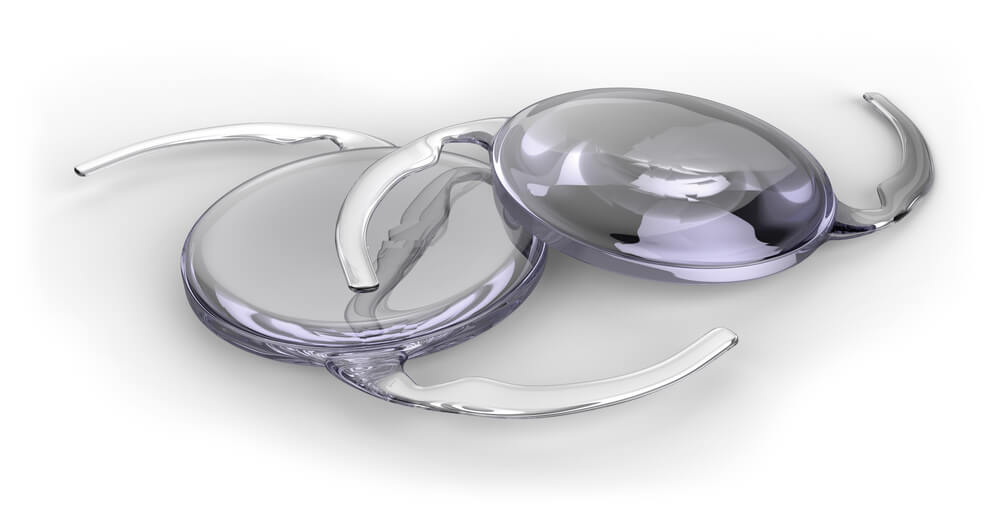Leader in Cataract Vision Correction
Always a leader in the field of vision correction and constantly striving for the best, Dr. Balin offers her cataract patients the most advanced selection of intraocular lenses available.

The difference between Refractive Cataract Surgery and traditional cataract surgery is in the lens selection. During Refractive Cataract Surgery Dr. Balin will implant one of the advanced multifocal, toric or accommodating intraocular lenses to correct nearsightedness, farsightedness, astigmatism and presbyopia. These advanced lenses provide the patient with a greater range of vision than would be possible with the standard monofocal lens used in traditional cataract surgery. Following the procedure, most patients treated with a multifocal, toric or accommodating intraocular lens will be able to greatly reduce or even eliminate their need for both distance and reading glasses.
Once you have been diagnosed with a cataract, you will need to have the cataract surgically removed in order to restore clear vision. Dr. Balin performs both Refractive Cataract and Traditional Cataract surgery offering her patients more flexibility and range in lens selection and visual outcomes.
Selecting the proper lens and determining your candidacy for cataract surgery requires specific testing, calculations, and guidance from an experienced surgeon. At Balin Eye & Laser Center we offer comprehensive cataract evaluations. At this visit, Dr. Balin will personally evaluate your candidacy for cataract surgery and make recommendations for lens selection based upon your exam and lifestyle needs.
Please contact our office at 413-584-6666 to set up a comprehensive cataract exam or if you have any questions.
Frequently Asked Questions
What is a cataract?
A cataract is the clouding of the natural lens in the eye. Cataracts are most commonly found in people age 60 and older. They are often the result of the natural aging process of the lens in the eye. However, cataracts can also be diagnosed in much younger individuals. They can be the result of a previous eye injury, chronic use of steroid drops or they can be inherited.
What are the symptoms of a cataract?
People suffering with a cataract may experience the following symptoms:
- Increasing loss or blurring of vision resulting in frequent eye glass prescription changes
- Increasing sensitivity to light
- glare or halo at night
- Colors may appear more yellowed and not as bright
- Vision may appear distorted like looking through wax paper or rain.
How is a cataract diagnosed?
Because a cataract cannot be seen by the naked eye, an ophthalmologist must dilate the pupil and examine the lens under a special microscope to see if a cataract is present.
How is a cataract treated?
Once a cataract has been diagnosed it must be surgically removed in order to restore clear vision. Dr. Balin performs the most advanced form of cataract surgery implementing a method known as phacoemulsification.
A complete physical is required prior to the surgery to ensure the patient’s overall physical health. Surgery is performed on one eye with the second eye usually being scheduled two weeks later.
During the surgery, a topical anesthetic is applied to numb the eye. Dr. Balin will make a small incision into the eye which is usually self-healing requiring no stitches. Using an ultra sound-emitting probe, Dr. Balin will direct the probe at the cataract using the sound waves from the probe to break the cataract into tiny microscopic pieces which are then gently suctioned from the eye. Once the impaired natural lens is removed completely, the new intraocular lens will be inserted through the small incision and positioned.
Following treatment, an eye patch will be placed over the treated eye to protect the eye and you will be given instructions for follow up care. You will need a driver to drive you home and a driver for the one day appointment which will be scheduled at Balin Eye & Laser Center.
What lens technology does Dr. Balin offer?
For Refractive Cataract Surgery, Dr. Balin offers the most advanced multifocal, toric and accommodating intraocular lenses to correct nearsightedness, farsightedness, presbyopia, and astigmatism. These lenses are designed to provide the patient with the greatest range of vision both near, far and in-between. Most patients who are treated with a premium intraocular lens will greatly reduce or even eliminate their need for distance and reading glasses following the procedure.
For patients undergoing traditional cataract surgery, Dr. Balin offers a standard monofocal intraocular lens which is usually set to offer vision at one distance. Although the monofocal lens can be chosen to achieve either distance, near or in-between vision, most patients select the lens for clear distance vision. Patients who elect a monofocal lens for distance vision will greatly reduce or even eliminate their need for distance vision glasses. However, they may need reading glasses for up-close and even in-between vision.
Where is the surgery performed?
Dr. Balin performs the surgery at the Cataract & Laser Center in West Springfield, MA. The surgery is performed as an outpatient procedure. Expect to be at the center for 2-3 hours. You will need a ride home from the surgery and a ride to your one day post-op appointment at the Balin Eye & Laser Center. If you need transportation, please contact our office so that we can arrange transport services.
What to expect following cataract surgery?
Following cataract surgery you may resume most normal activities within 48 hours, however, you will be given restrictions on lifting, bending and exertion. You will also be given a schedule of drops to use as you heal. Your follow up appointments will occur at the Balin Eye & Laser Center over the next few months. You will need a ride to your one day post-op appointment. Dr. Balin will evaluate your vision at your post-op appointment and give you clearance to drive based on your healing.
Does insurance cover the cost of Cataract Surgery?
Insurance may cover the costs of traditional cataract surgery including the cost of the lens. However, patients may have deductibles, co-payments and co-insurance costs that will be their responsibility once the insurance has made payment toward the surgery. It is important to discuss your benefits with your insurance provider.
For patients who are electing to have Refractive Cataract Surgery, an insurance benefit may apply to the cataract surgery, however, it will not cover the additional costs for the pre and post operative care associated with refractive lens replacement. The additional testing, surgical expertise and follow up care involved with a premium lens will be the patient’s responsibility. These costs will be quoted at the cataract comprehensive exam. We do offer financing options.



